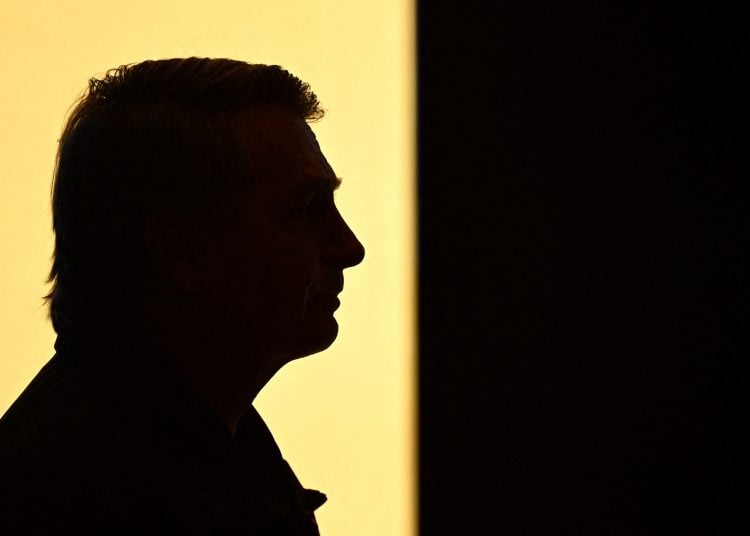The trial of Brazil’s former president Jair Bolsonaro and seven of his closest allies begins this Tuesday (2) in the country’s Supreme Court. The case investigates the attempted coup to overturn the 2022 elections, in which far-right groups aimed to keep Bolsonaro in power despite his defeat. Among the accused are former ministers and generals of the Armed Forces. The verdict is expected by September 12.
The five justices of the First Panel of the Supreme Federal Court (STF) will evaluate whether the charges presented by the Prosecutor General’s Office (PGR) hold up against the eight defendants. The panel includes Justices Alexandre de Moraes (rapporteur), Flávio Dino, Luiz Fux, Cármen Lúcia and Cristiano Zanin. If three out of five vote to convict, the defendants will face prison time.
A total of eight court sessions are scheduled over five days. The STF registered 3,357 applications from people wishing to attend the trial in person and accredited 501 journalists from national and international outlets. BdF is among the accredited press. The entire trial will be broadcast live on TV Justiça, the STF’s YouTube channel, and Radio Justiça.
The charges and defendants
The defendants are accused of forming the “core nucleus” of the criminal conspiracy that led to the January 8, 2023 attacks on Brazil’s democratic institutions. Charges include armed criminal organization, attempted violent abolition of the democratic state, coup attempt, aggravated damage by violence and threat, and destruction of protected public property.
Only Alexandre Ramagem, a federal congressman and former head of Brazil’s intelligence agency Abin, has had some charges suspended by Congress. His other charges (coup attempt, armed conspiracy, and attack on democratic institutions) remain active but will only be tried once his parliamentary term ends.
The participation of each defendant is described separately in the indictment and will be individually evaluated by the court:
- Alexandre Rodrigues Ramagem, former intelligence chief, is accused of spreading false claims about election fraud.
- Almir Garnier Santos, retired admiral and ex-Navy chief, allegedly supported the coup plan and helped draft the “coup minutes.”
- Anderson Gustavo Torres, Bolsonaro’s former justice minister, is accused of enabling the January 8 attacks and obstructing the vote in 2022.
- Augusto Heleno Ribeiro Pereira, retired Army general and ex-national security adviser, allegedly helped craft Bolsonaro’s anti-democratic rhetoric.
- Jair Messias Bolsonaro, the former president, is considered the leader of the plot and the main beneficiary. Prosecutors claim he incited military intervention and promoted the “Green and Yellow Dagger” plan to monitor and eliminate political opponents. He is currently under house arrest for violating previous court orders.
- Mauro César Barbosa Cid, Bolsonaro’s former aide-de-camp and a military officer, is the only defendant to cooperate with prosecutors. He admitted his role and provided detailed testimony in exchange for a reduced sentence.
- Paulo Sérgio Nogueira de Oliveira, Army general and Bolsonaro’s former defense minister, allegedly attended meetings to plan the coup.
- Walter Souza Braga Netto, retired general and former chief of staff, ran as Bolsonaro’s 2022 vice-presidential candidate and has been jailed since December 2024 for obstructing the investigation.
Except for Mauro Cid, all defendants deny wrongdoing and seek acquittal.
How the trial will unfold
Justice Cristiano Zanin will open the proceedings with a brief summary. Rapporteur Alexandre de Moraes will then present a report of the case, from investigation to indictment. Prosecutor General Paulo Gonet will have two hours to argue for conviction, followed by one hour each for defense attorneys.
After oral arguments, the five justices will cast their votes, beginning with Alexandre de Moraes. They may first decide on preliminary motions, such as requests to nullify evidence like Mauro Cid’s plea bargain. Then, the panel will analyze the substance of the charges one by one.
Conviction requires a simple majority. If a justice requests a recess, the trial may pause for up to 90 days. If convicted, the court must determine individualized sentences for each defendant. If acquitted, charges are dropped.
Only one type of appeal is allowed: a clarification motion that cannot reverse the conviction but may adjust technical aspects of the ruling, such as sentence conditions or eligibility for house arrest. Once the appeal is resolved, the sentence becomes final, and convicts must begin serving time.
Security measures in place
The Federal District’s Public Security Secretariat (SSP/DF) has activated a special protocol for the trial period. In partnership with local and federal law enforcement, the plan includes extensive monitoring of central Brasília, coordination with public services, and reinforced patrols by the Military Police.
The area around the Supreme Court building will be cordoned off in a one-kilometer radius, per an order by Justice de Moraes. Additional checkpoints will be placed throughout the Three Powers Plaza. A separate security plan will cover Brazil’s Independence Day events on Sept. 7, which happen between trial sessions.




